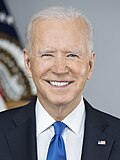2024 Guam Democratic presidential caucus | |||||||||||||||||||
| |||||||||||||||||||
12 delegates (7 pledged, 5 unpledged) to the Democratic National Convention | |||||||||||||||||||
|---|---|---|---|---|---|---|---|---|---|---|---|---|---|---|---|---|---|---|---|
| |||||||||||||||||||
2024 Guam Republican presidential caucus | |||||||||||||||||||
| |||||||||||||||||||
9 Republican National Convention delegates | |||||||||||||||||||
| |||||||||||||||||||
| Elections in Guam |
|---|
 |
Although Guam did not participate in the 2024 presidential election because it is a U.S. territory and not a state, it participated in the presidential primaries and caucuses.

